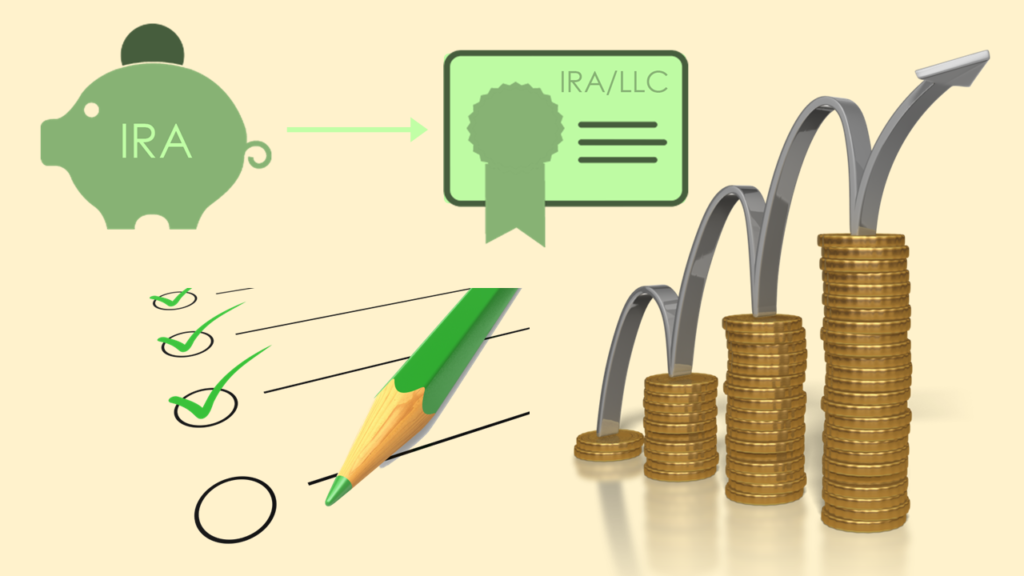
Self-Directed IRA Real Estate Pros and Cons:
Investing in Multifamily Real Estate With a Self Directed IRA
If you’re a successful real estate investor, new to real estate investing, or if you’re looking to diversify your retirement portfolio. Imagine the possibility of not paying taxes on the profits of your next single-family or multifamily investment property. It’s possible with the combination of tax advantages in an IRA and real estate investments. After your next real estate transaction, you could defer paying taxes on the profits for years or never pay taxes, depending on the account if you use a self-directed IRA.
In this guide, we’ll learn more about a self-directed IRA, the rules, and all the self-directed IRA real estate pros and cons of using it to invest in your next real estate investment.
Roth IRA vs. Traditional IRA Tax Benefits & Overview
First introduced in 1974, the IRA has grown awareness among retirement savers about the flexibility in investment types other than the traditional offerings of stocks, bonds, mutual funds, ETFs, and CDs within an Individual Retirement Account (IRA).
There are two main types of IRAs to choose from: a Roth IRA and a Traditional IRA.
1.) Traditional IRA
Contributions to traditional IRAs are tax deductible, but withdrawals in retirement are taxable.
2.) Roth IRA
Contributions to Roth IRAs are not tax-deductible, but withdrawals in retirement are tax-free.
Roth IRAs are very popular in the news as reports surfaced of billionaire venture capitalist and former Paypal co-founder Peter Theil. Thiel amassed a $5 billion-plus net worth tax-free through his Roth IRA from only an initial $2,000 contribution.
The rule of thumb for choosing early on in life what type of IRA to utilize is based on whether you expect to be in a lower or higher tax bracket in retirement. If you expect to be in a lower tax bracket in your retirement, then it’s best to choose a traditional IRA for its upfront tax advantages. If you expect to be in a higher tax bracket in retirement, then it’s best to choose a Roth IRA for its backend tax advantages.
What is a Self-Directed IRA?
The self-directed IRA is an individual retirement account that allows the account owner to direct the account trustee to invest in alternative investments. Individual retirement accounts will enable an individual to choose to self-direct their Roth IRA or Traditional IRA.
Self-Directed IRAs allow you to invest in the following:
- Real Estate
- Precious Metals
- Notes
- Tax Lien Certificates
- Private Placements
- And many more investment options.
Traditional and Roth IRAs can be converted into self-directed IRAs, where the individual has more control over what to do with the cash and still has the tax-deferred benefits that an IRA offers. 401(k) plans work a little differently; if the individual is still employed by the company that sponsors the 401(k) plan, they can’t move the money around. A rollover is possible if it’s an old 401(k).
Convert IRA to Self Directed IRA
One of the most significant differences when converting your IRA to a self-directed IRA is that it requires you to hire someone to act as the trustee or custodian of the account. The custodian’s job is to ensure you don’t violate any terms, manage the transaction and paperwork and provide financial reporting compliance of the investment. In contrast, you act as the director, deciding where to invest the account’s funds. Traditional IRA providers, like a brokerage firm, bank, or credit union, might not offer a self-directed IRA, which is why you need to find an IRA custodian or a special trust company.
Technically you, the individual who owns the account, do not directly own the commercial real estate; instead, your self-directed IRA does. Many reputable companies do this, and we can help steer you in the right direction if you need it; shoot us a message.
IRAs can invest in new assets, which is a highly appealing feature. Great responsibility comes with great power. You must handle all of your portfolio holdings yourself. You are also responsible for not endangering the tax-assured status of your self-directed IRA by erring on the side of caution. Your self-declared IRA account manager can manage every aspect and makes all your money’s investments in your account a priority.
Can you invest in real estate with a Self-Directed IRA?
Whoever the account owner is, makes all the investment decisions and ultimately determines how, where, and when to invest the retirement funds. With a self-directed IRA, you can diversify beyond the market into real property. You don’t have to be limited to stocks or mutual funds that hold real estate investments; you can own the actual investment property in your retirement account.
Long-term investing in a tax advantage account like a self-directed IRA (tax-deferred/tax-free profits, plus the possibility of significant tax deductions) can have a massive effect on future wealth creation. Certain self-directed IRAs allow the passing of assets to beneficiaries after death with little or no tax, passive wealth from generation to generation.
Self-Directed IRA Real Estate IRS Rules:
Disqualified Persons
When investing in real estate with a self-directed IRA, it’s important to note that you cannot rent to, buy or deal with the following disqualified people in any transaction using your self-directed IRA funds.
- Any family member (your husband or wife, parents, children, great-great grandparents, and so on)
- The beneficiary of the IRA
- Any service vendor that’s somehow related to the administrating and servicing of your self-directed IRA
- An entity in which you own more than 50% stock in
The real estate investment made through your self-directed IRA must be purely held for investment.
For example, you cannot purchase a vacation home and vacation into it a few times a year, nor can you buy a rental property and lease a unit out to your son.
If you invest your self-directed IRA into a multifamily real estate syndication, for example, none of the above would be a problem as the asset that you’re investing into would be held purely as an investment and won’t have any ties to disqualified persons.
Self-Directed IRA Real Estate Pros and Cons:
There are both pros and cons of investing in real estate with your self-directed IRA; below is a list of things that you need to be mindful of before you invest.
Pros of Self-Directed IRA real estate
- Complete control over your investments
- Built-in tax breaks on your earnings
- Have your investment line up with your passions
- Option to select investments that produce a higher ROI
Cons of Self-Directed IRA real estate
- Responsibility to perform your own due diligence on the investment opportunity
- Making the wrong investment
How much money can you put in a Self-Directed IRA?
As of 2021, you can contribute up to $6,000 a year in new money towards your self-directed IRA. If you’re over age 50, you can contribute an additional $1,000 in “catch-up” contributions for a total of $7,000 a year.
The best way of financing a multifamily investment property is with a non-recourse mortgage. These usually necessitate at least 25% down and may require significant money to acquire the property. As a result, when investors buy real estate, they generally combine huge IRA balances with those in the account.
Frequently Asked Questions About The Pros And Cons Of Self Directed IRA Real Estate
Can I live in a property owned by my self-directed IRA?
No, you cannot live in a property owned by your self-directed IRA. Self-directing your IRA into real estate means that the intention is that the asset owned by your IRA is used for strictly investment purposes.
Can I add money to a self-directed IRA?
Yes, you can add money to your self-directed IRA every year. Depending on if you are above 50 years old or not will dictate how much you can contribute to your IRA.
Can an IRA invest in a real estate partnership?
Yes, if you set up your Traditional or Roth IRA to be a Self-Directed IRA, whereas you, the account owner, appoint an account trustee to qualify an investment opportunity and invest into alternate investments like real estate. Most commonly, investors will convert their Traditional or Roth IRA to a Self-Directed IRA to be a limited partner (LP) or passive investor in a multifamily real estate syndication.
Can You Invest In Real Estate With an IRA – Conclusion
Owning real estate and taking control of your retirement funds can yield significant long-term returns if you invest in the right instruments like hard, cash-flowing appreciating apartment communities.
You can self-direct your IRA into a real estate syndication, as we offer here at Willowdale Equity, without all headaches of operating it. The advantage of re-investing and rolling over your money pre-tax, as opposed to post-tax, will likely create two very different fixed amounts in your retirement savings account at the end of the tunnel.
